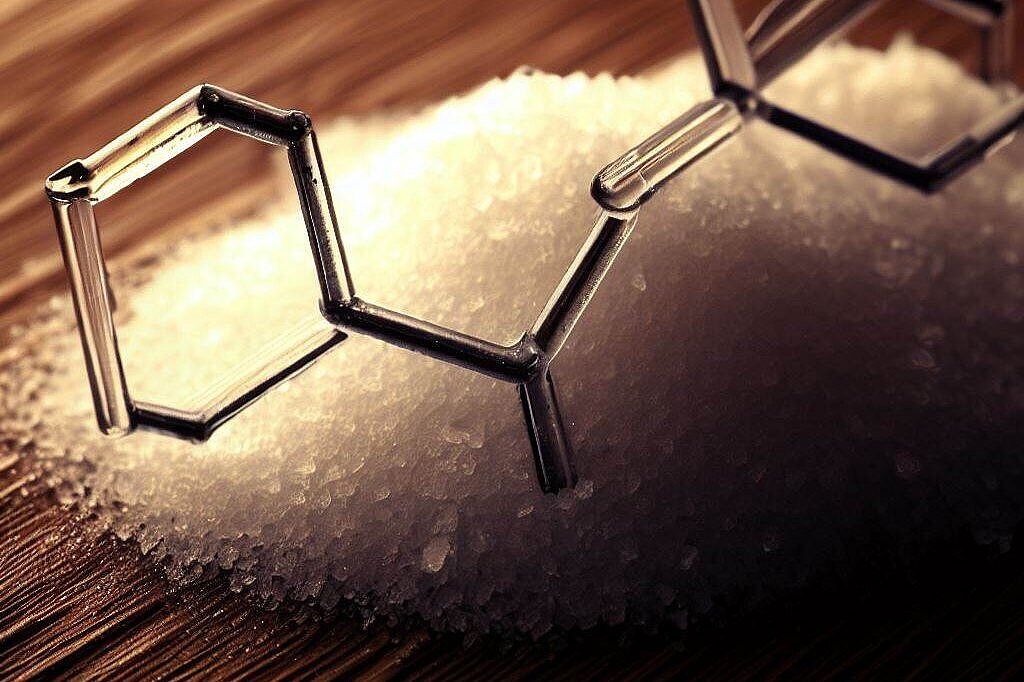Ascorbyl palmitate

Ascorbyl palmitate is a food additive used as an antioxidant and emulsifier. It is an ester of ascorbic acid (vitamin C) and palmitic acid, a saturated fatty acid. Ascorbyl palmitate has the E number E304 and is considered safe for human consumption. But what about dogs? Is ascorbyl palmitate harmful or beneficial for them? In this article, you can find out more about this ingredient and its advantages and disadvantages for your four-legged friend.
What is ascorbyl palmitate and what is it used for?
Ascorbyl palmitate is a synthetically produced substance that combines the antioxidant properties of vitamin C with the fat-soluble properties of palmitic acid. This means that ascorbyl palmitate is effective in both aqueous and fatty media and thus increases the shelf life of foods by preventing the degradation of fats, vitamins and colorants. Ascorbyl palmitate is mainly used in fatty foods such as margarine, butter, dairy products, meat products, baked goods and chocolate. It can also be found in cosmetics, medicines and food supplements.
How does ascorbyl palmitate affect dogs?
Ascorbyl palmitate can have both positive and negative effects on dogs. On the one hand, ascorbyl palmitate can serve as a source of vitamin C, which is important for dogs to strengthen the immune system, promote wound healing, support collagen formation and fight free radicals. On the other hand, ascorbyl palmitate can also lead to side effects if ingested in excessive amounts. Possible symptoms include diarrhea, vomiting, stomach upset, headaches, skin rash and kidney stones. Ascorbyl palmitate can also impair the absorption of other nutrients such as iron or copper or alter the effect of certain medications such as acetylsalicylic acid or warfarin.
Ascorbyl palmitate is a food additive that can have both advantages and disadvantages for dogs. It can act as an antioxidant and provide vitamin C, but can also lead to digestive problems or other complications. The tolerance of ascorbyl palmitate depends on the amount, frequency and individual sensitivity of the dog. In general, the more natural the dog's diet is, the better. If you give your dog ready-made food, make sure that it does not contain any unnecessary additives or choose products with natural preservatives such as rosemary extract or citric acid.
Properties 7
Are you looking for other ingredients with a specific property?
Just click on them to find more.
If you notice any signs of hypersensitivity or poisoning in your dog, you should see your vet immediately. We are not a substitute for a vet, but we try to be as accurate as possible. Every dog reacts differently and we recommend you get a second opinion or consult your vet if in doubt.
Stay healthy and take good care of your four-legged friend!😊
Similar to Ascorbyl palmitate
Vitamin C, also known as ascorbic acid, is a water-soluble vitamin that is found in many plant and animal foods. It is primarily known for its antioxidant effect, i.e. it intercepts free radicals...
Vitamin E is a fat-soluble vitamin that consists of various compounds called tocopherols. There are four different forms of tocopherols: Alpha-, beta-, gamma- and delta-tocopherol. The most...
Butylated hydroxyanisole is a synthetic additive that acts as an antioxidant. This means that it prevents fats and oils from becoming rancid and smelling or tasting unpleasant. It is mainly used in...
Butylated hydroxytoluene is a synthetic substance that belongs to the phenol group. Phenols are organic compounds consisting of a benzene ring with one or more hydroxyl groups. BHT is mainly used...



